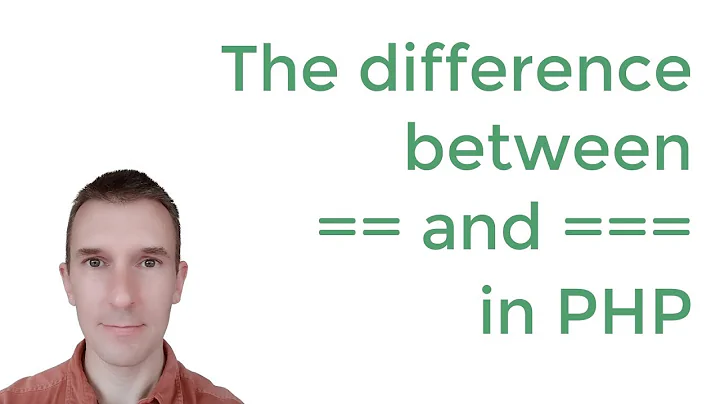Why equal operator works for Integer value until 128 number?
Solution 1
Check out the source code of Integer . You can see the caching of values there.
The caching happens only if you use Integer.valueOf(int), not if you use new Integer(int). The autoboxing used by you uses Integer.valueOf.
According to the JLS, you can always count on the fact that for values between -128 and 127, you get the identical Integer objects after autoboxing, and on some implementations you might get identical objects even for higher values.
Actually in Java 7 (and I think in newer versions of Java 6), the implementation of the IntegerCache class has changed, and the upper bound is no longer hardcoded, but it is configurable via the property "java.lang.Integer.IntegerCache.high", so if you run your program with the VM parameter -Djava.lang.Integer.IntegerCache.high=1000, you get "Same values" for all values.
But the JLS still guarantees it only until 127:
Ideally, boxing a given primitive value p, would always yield an identical reference. In practice, this may not be feasible using existing implementation techniques. The rules above are a pragmatic compromise. The final clause above requires that certain common values always be boxed into indistinguishable objects. The implementation may cache these, lazily or eagerly.
For other values, this formulation disallows any assumptions about the identity of the boxed values on the programmer's part. This would allow (but not require) sharing of some or all of these references.
This ensures that in most common cases, the behavior will be the desired one, without imposing an undue performance penalty, especially on small devices. Less memory-limited implementations might, for example, cache all characters and shorts, as well as integers and longs in the range of -32K - +32K.
Solution 2
According to Java Language Specifications:
If the value p being boxed is true, false, a byte, a char in the range \u0000 to \u007f, or an int or short number between -128 and 127, then let r1 and r2 be the results of any two boxing conversions of p. It is always the case that r1 == r2.
Refer to this article for more information on int caching
Solution 3
Integer is a wrapper class for int.
Integer != Integer compares the actual object reference, where int != int will compare the values.
As already stated, values -128 to 127 are cached, so the same objects are returned for those.
If outside that range, separate objects will be created so the reference will be different.
To fix it:
- Make the types
intor - Cast the types to
intor - Use
.equals()
Solution 4
The Integer object has an internal cache mechanism:
private static class IntegerCache {
static final int high;
static final Integer cache[];
static {
final int low = -128;
// high value may be configured by property
int h = 127;
if (integerCacheHighPropValue != null) {
// Use Long.decode here to avoid invoking methods that
// require Integer's autoboxing cache to be initialized
int i = Long.decode(integerCacheHighPropValue).intValue();
i = Math.max(i, 127);
// Maximum array size is Integer.MAX_VALUE
h = Math.min(i, Integer.MAX_VALUE - -low);
}
high = h;
cache = new Integer[(high - low) + 1];
int j = low;
for(int k = 0; k < cache.length; k++)
cache[k] = new Integer(j++);
}
private IntegerCache() {}
}
Also see valueOf method:
public static Integer valueOf(int i) {
if(i >= -128 && i <= IntegerCache.high)
return IntegerCache.cache[i + 128];
else
return new Integer(i);
}
This is why you should use valueOf instead of new Integer. Autoboxing uses this cache.
Also see this post: https://effective-java.com/2010/01/java-performance-tuning-with-maximizing-integer-valueofint/
Using == is not a good idea, use equals to compare the values.
Solution 5
Use .equals() instead of ==.
Integer values are only cached for numbers between -127 and 128, because they are used most often.
if (a.equals(b)) { ... }
Related videos on Youtube
gokhansari
Updated on June 16, 2022Comments
-
 gokhansari almost 2 years
gokhansari almost 2 yearsWhy Integer
==operator does not work for 128 and after Integer values? Can someone explain this situation?This is my Java environment:
java version "1.6.0_37" Java(TM) SE Runtime Environment (build 1.6.0_37-b06) Java HotSpot(TM) 64-Bit Server VM (build 20.12-b01, mixed mode)Sample Code:
Integer a; Integer b; a = 129; b = 129; for (int i = 0; i < 200; i++) { a = i; b = i; if (a != b) { System.out.println("Value:" + i + " - Different values"); } else { System.out.println("Value:" + i + " - Same values"); } }Some part of console output:
Value:124 - Same values Value:125 - Same values Value:126 - Same values Value:127 - Same values Value:128 - Different values Value:129 - Different values Value:130 - Different values Value:131 - Different values Value:132 - Different values -
lbalazscs about 11 yearsThis answer is wrong, it has to do nothing with the hotspot jvm, the caching is implemented in the source code of Integer,
-
Denis Rosca about 11 years@lbalazscs as far as I know the values that are cached are jvm dependent. I think this caching is specified in the java language spec, but the values to be cached are not specified. This is why I mentioned the hotspot jvm. Is this not correct?
-
 Marko Topolnik about 11 yearsIt is not correct. Why don't you have a look at the source code of
Marko Topolnik about 11 yearsIt is not correct. Why don't you have a look at the source code ofjava.lang.Integer, for example. -
Christophe Roussy about 11 yearsNot correct, it is related to the implementation of java.lang.Integer
-
lbalazscs about 11 yearsThe documentation of Integer.valueOf (and not the JLS) mentions that this method could use caching.
-
Denis Rosca about 11 years@lbalazscs actually the jls specifies that. But I admit that my answer is a little misleading. I'll edit it.
-
lbalazscs about 11 yearsOK, the JLS also mentions caching. But unless you show me the caching in the source code of the JVM, I really don't think that they implemented a second caching there, if there is already one in the source code of Integer...
-
Denis Rosca about 11 years@lbalazscs I aggree, my comment about the jvm was misleading, although the same jls states that different implementations can cache more values if they are not resource constrained.











